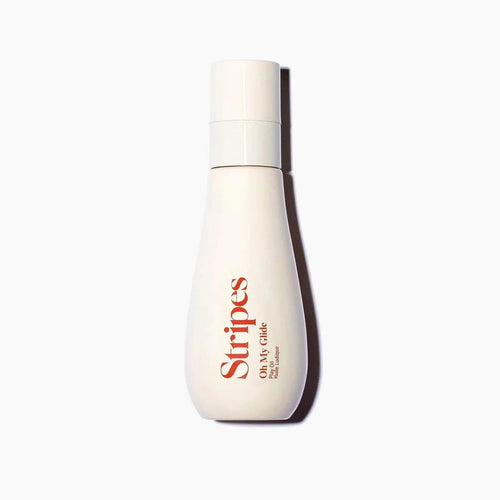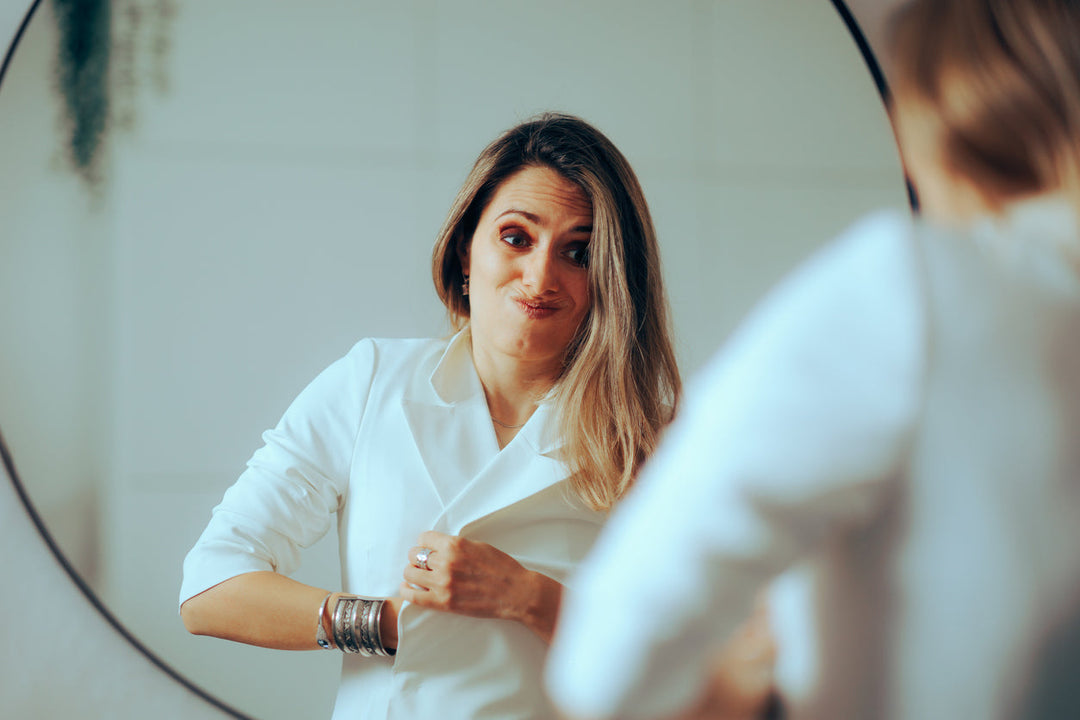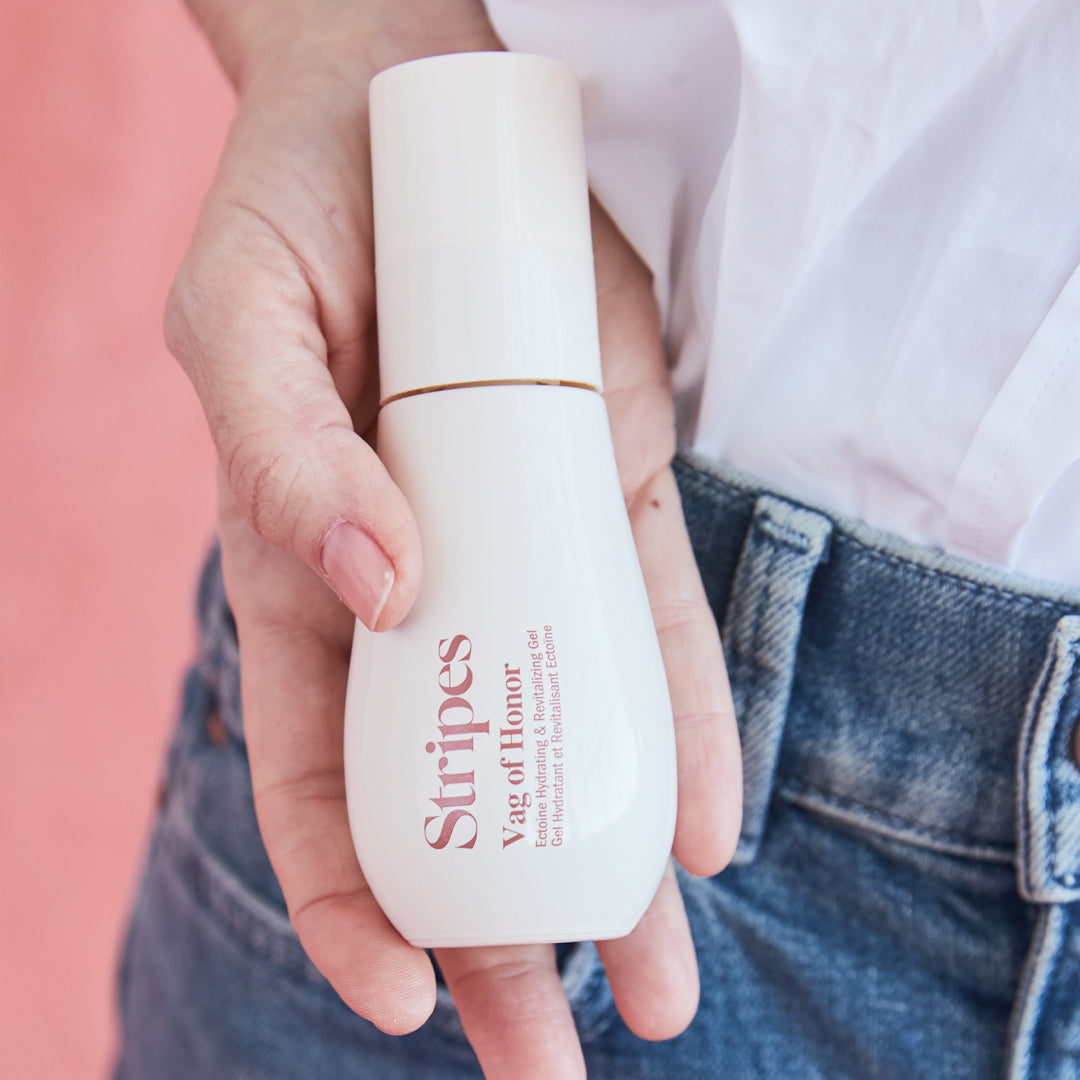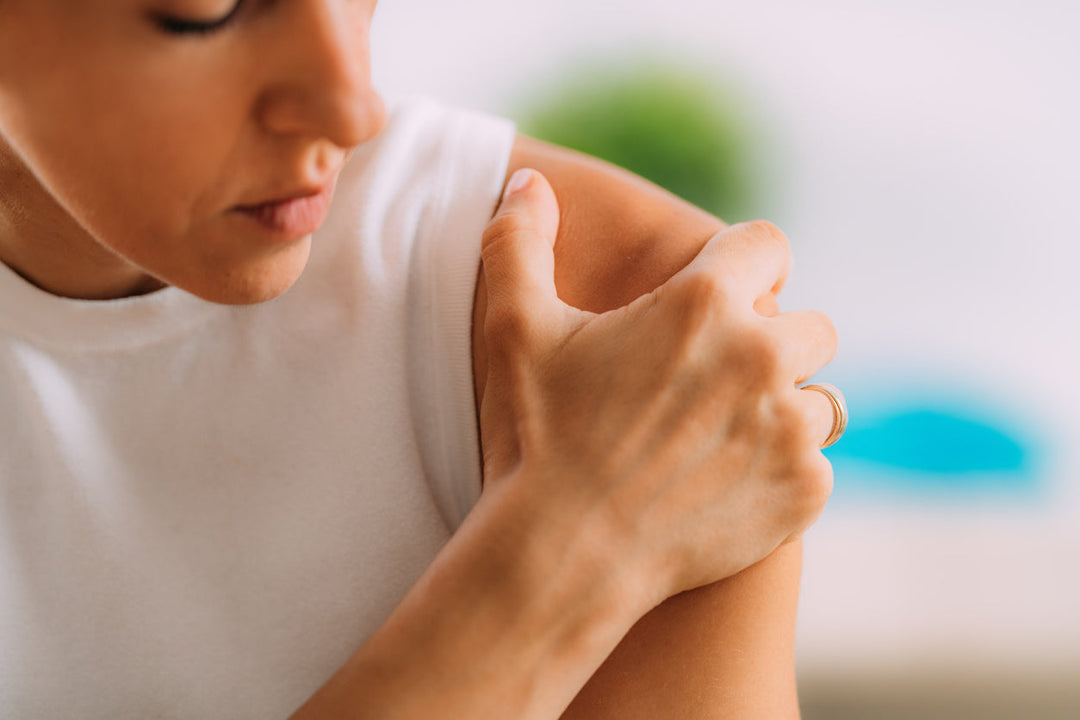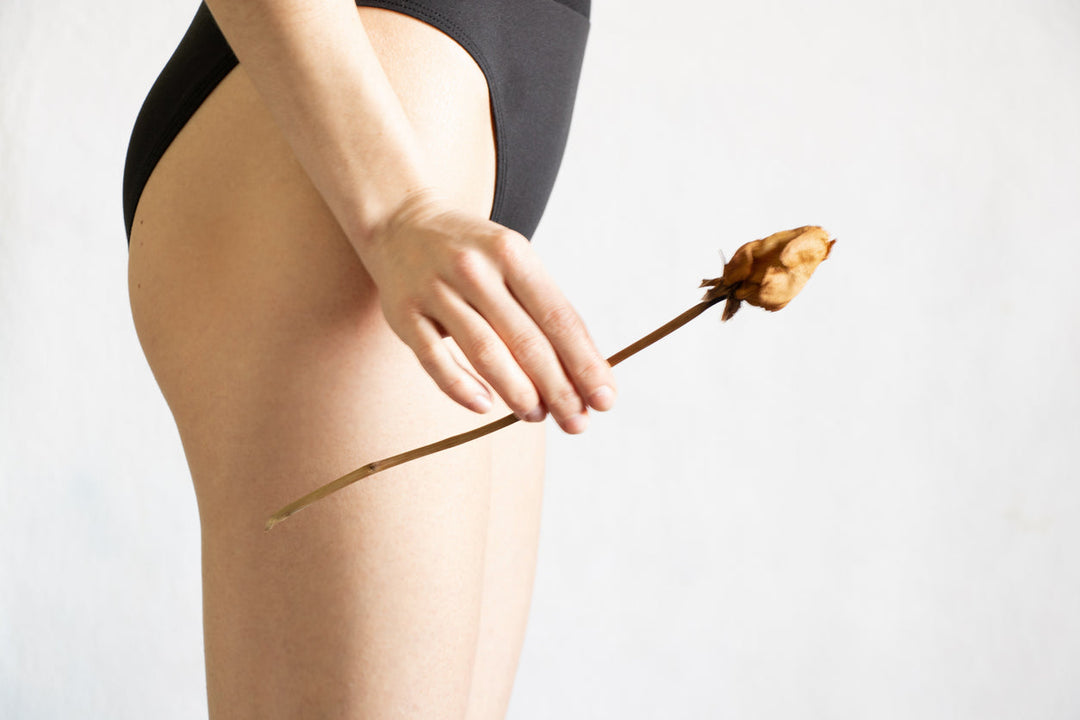Menopause and Itchy Breasts — What’s Going On and What to Do About It
Let’s be honest: menopause throws some wild curveballs, but one that doesn’t get nearly enough airtime? Itchy breasts. Yep, those little “why am I scratching like a cat against a sofa?” moments are actually pretty common during perimenopause and menopause. If you’ve found yourself Googling this very topic (you’re not alone), let’s break down what’s happening, what’s normal, and when to call in the pros.
Why breasts get itchy during menopause
Hormones run the show here. As Dr. Somi Javaid, a board-certified OB/GYN, menopause expert, and Stripes Advisory Board member explains, “declining estrogen thins skin, reduces sebum, and disrupts the barrier — leading to dryness (xerosis), micro-irritation, and itch. Estrogen loss also alters collagen and elastin, making breast skin more reactive.”
Translation? The skin covering your breasts gets drier, thinner, and a little more high-maintenance as estrogen levels dip. Throw in some everyday triggers like a bra that rubs, a sweaty workout, or that “spring meadow” scented detergent, and your breasts might feel like they’re staging a protest.
Some women also experience heightened histamine responses during hormonal fluctuations, which basically means your skin may be extra sensitive and reactive to things that didn’t bother you before.
Common triggers
A few of the usual suspects for midlife breast itchiness:
-
Friction: Bras that dig, rub, or trap sweat.
-
Heat and sweat: Especially under-breast folds, where moisture lingers.
-
Detergents and fragrances: That scent in your laundry soap isn’t always great for your skin barrier.
-
Fungal overgrowth: Warm, damp spots (like under the breasts) can occasionally invite yeast to the party.
Red flags to watch out for
Most itchy-breast moments are harmless and treatable at home. But Dr. Somi cautions that certain symptoms deserve a check-in with your clinician:
-
Unilateral (one-sided) nipple discharge
-
Persistent areolar/nipple rash
-
Warmth or swelling in one breast
-
A palpable lump or mass
-
Skin dimpling
-
Fever
If you spot any of these, don’t chalk it up to hormones—get it evaluated.
How to find relief
Now for the good stuff: solutions. Luckily, itchy breasts during menopause are usually manageable with a few smart strategies.
1. Repair the Barrier
Post-shower, seal in hydration with a fragrance-free, ceramide-rich moisturizer or oil. Your breasts deserve the same TLC as your face. Try The Full Monty Hydrating Body Oil, which has squalane and vitamins C and E to improve the skin barrier and moisture levels.
2. Gentle Cleanse
Scalding showers may feel amazing, but they strip your skin barrier. Keep water lukewarm, showers short, and reach for a pH-balanced, sulfate-free wash.
3. Smart Fabrics
Swap lace and synthetics for breathable, moisture-wicking bras. And when doing laundry, stick with dye- and fragrance-free detergents to keep irritation down.
4. Symptom Support
For stubborn nighttime itching, some women find antihistamines helpful. Just confirm with your clinician to avoid interactions.
5. Hormone Help
For widespread dryness and itch that just won’t quit, menopausal hormone therapy (MHT/HRT) can be game-changing. As Dr. Somi notes, it not only helps hydration but also supports collagen in the skin. Not everyone is a candidate, so chat with your doctor.
Treat your body like your face
Itchy breasts in menopause might feel awkward, but they’re far from unusual. Hormonal changes make your skin thinner, drier, and a bit more dramatic. But with the right mix of moisturizers, gentle care, and smart fabrics, you can usually find relief.
And remember: if your itch is joined by any of the red-flag symptoms above, don’t wait — get checked out. Otherwise, treat your breasts with the same barrier-boosting love you give your face, and you’ll be back to scratch-free comfort in no time.



